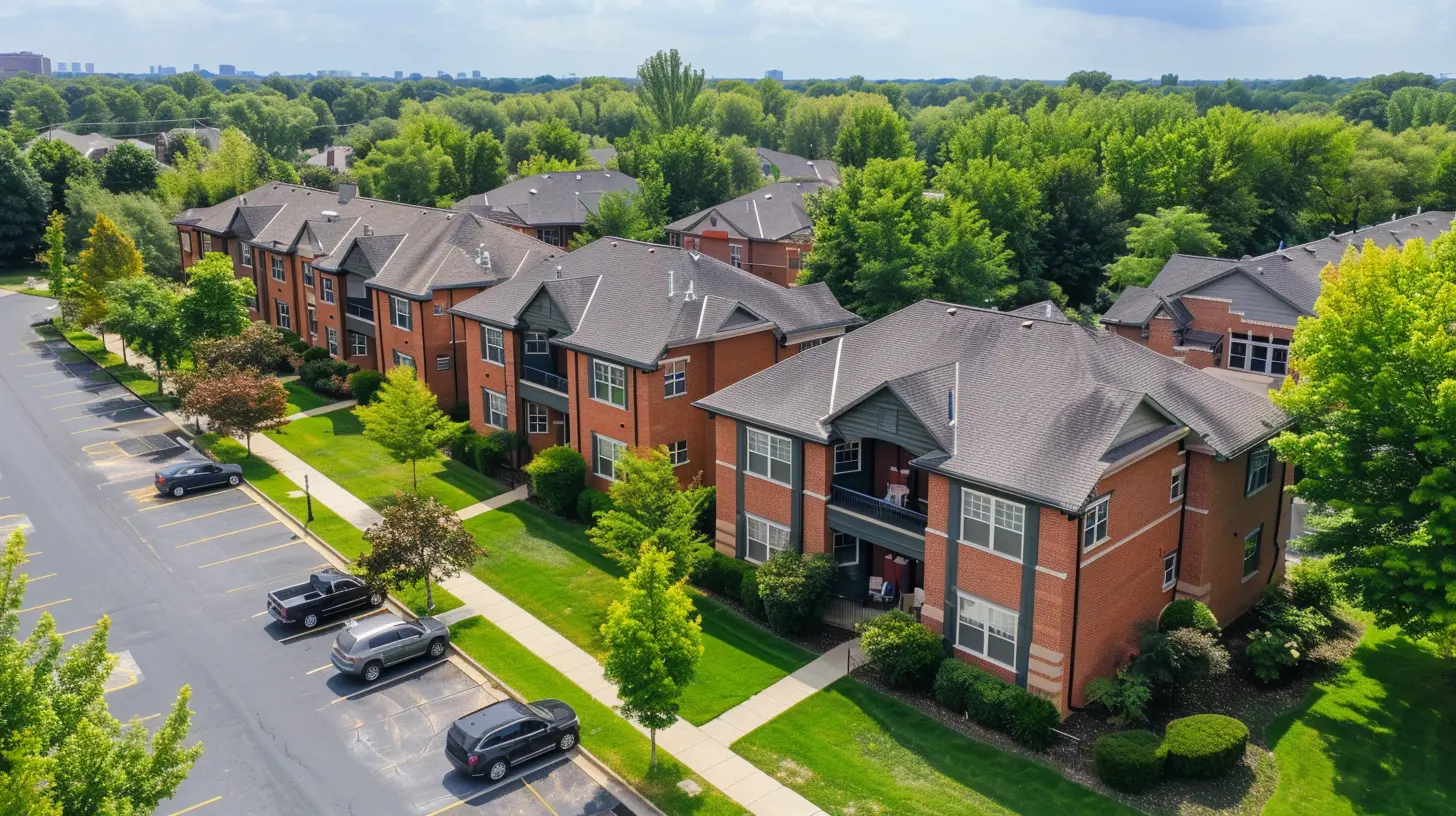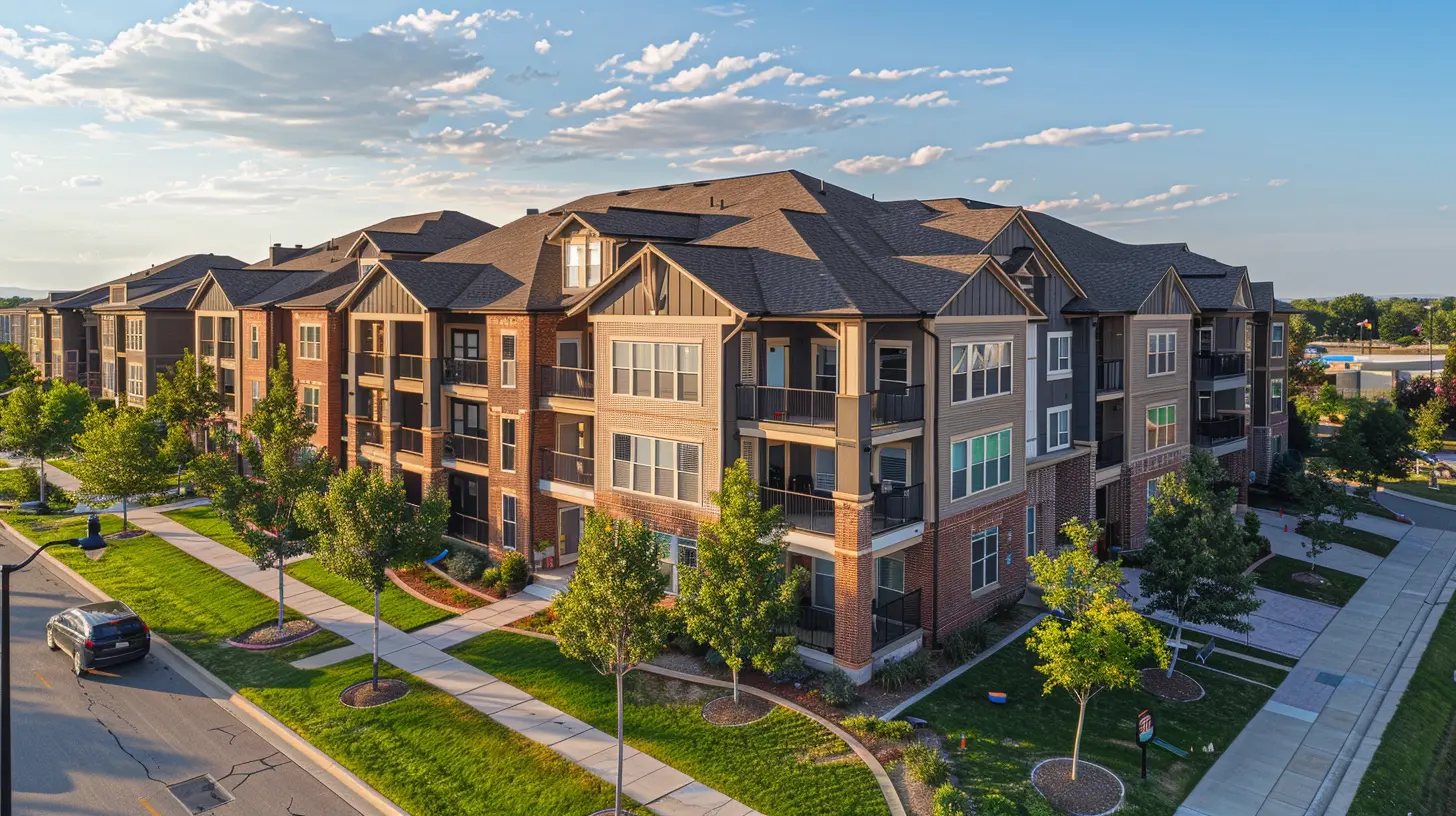Key Factors to Consider When Purchasing Multifamily Buildings
13 October 2025
Investing in a multifamily building can be a game-changer for your financial future. Whether you're an experienced real estate investor or just dipping your toes into the rental market, multifamily properties offer steady rental income and long-term appreciation.
But don’t just dive in headfirst—making a smart purchase requires careful analysis. From location and financing to tenant management and property condition, several key factors can make or break your investment. So, let’s break it all down and ensure you’re making the right choice. 
1. Location, Location, Location
You've probably heard this before, but it’s worth repeating—location is everything in real estate. A great building in a bad neighborhood? That’s a disaster waiting to happen.Here’s what you need to evaluate:
- Neighborhood Quality – Look for areas with strong job growth, low crime rates, and good schools. Happy tenants mean lower vacancy rates.
- Market Demand – Avoid areas with an oversupply of rental units. Check rental demand and comparable property prices before committing.
- Access to Amenities – Tenants love convenience. Proximity to public transport, shopping centers, parks, and restaurants can make your property more attractive.
Think of it this way—would you want to live there? If the answer is no, your tenants likely won’t either. 
2. Property Condition and Maintenance Costs
A beautiful building with hidden issues can drain your bank account faster than you think. Before signing anything, get a thorough property inspection to check for potential red flags like:- Structural damage (foundation cracks, roof issues, etc.)
- Plumbing or electrical problems
- Pest infestations
- Outdated HVAC systems
Older buildings may have character, but they also come with maintenance headaches. Factor in repair and renovation costs—because deferred maintenance can eat into your profits fast. 
3. Financial Analysis and Cash Flow
Real estate is all about numbers. A property might look great, but if it doesn’t bring in steady income, it’s not a smart investment.Here’s what you need to crunch:
- Gross Rental Income – How much rent will the property generate monthly?
- Vacancy Rate – Not all units will be occupied 100% of the time. Factor in potential vacancies.
- Operating Expenses – Think property taxes, insurance, maintenance, and property management fees.
- Cash Flow – After covering all expenses, will you still have profit left over?
A solid cap rate (Capitalization Rate)—which is the annual return on your investment—should be above 5-6% for a healthy income stream. 
4. Financing Options and Mortgage Terms
Unless you’re buying with cash (lucky you!), you’ll need to secure financing. Getting a loan for a multifamily property works slightly differently than a traditional mortgage, so be prepared for:- Higher down payments (usually 20-25%)
- Stricter credit requirements
- Higher interest rates compared to single-family homes
- Debt service coverage ratio (DSCR) requirements – Lenders want to see that rental income will cover loan payments
It’s also wise to compare loan options. Should you go for a traditional mortgage, a commercial loan, or even an FHA loan for multi-unit properties? The right financing strategy can make or break your deal.
5. Tenant Quality and Lease Agreements
Your tenants are your business. Good tenants mean steady rental income; bad ones bring late payments, property damage, and headaches.Before buying, check:
- Tenant history – Are existing tenants paying on time?
- Lease agreements – Are they long-term or short-term leases?
- Tenant mix – A solid combination of families, professionals, and retirees can create stability.
If you inherit bad tenants, replacing them won’t be easy. It’s better to buy a building with a strong rental history.
6. Local Laws and Regulations
Owning a multifamily property isn’t just about collecting rent. You must comply with local landlord-tenant laws, zoning regulations, and housing codes.Ask yourself:
- Are there rent control laws? – Some cities cap rent increases, limiting your income potential.
- What are eviction rules? – Tenant eviction laws vary widely, and some places make it harder to remove problem tenants.
- Are there property codes? – Some areas have strict maintenance and inspection requirements.
Failing to follow local laws can result in hefty fines or legal trouble, so it’s best to stay informed.
7. Property Management – DIY or Hire a Pro?
Managing a multifamily property is no small task. Are you ready to handle maintenance requests, collect rent, and deal with tenant issues? If not, hiring a property management company may be your best bet.A property manager can:
- Screen tenants
- Handle maintenance and repairs
- Collect rent and manage finances
- Navigate legal issues
Of course, property management services aren’t free—they typically charge 8-12% of monthly rent—so budget accordingly.
8. Exit Strategy – Always Have a Backup Plan
Nothing lasts forever, and real estate is no exception. Before purchasing, think about your long-term plan for the property.- Will you hold it for rental income? Long-term ownership can build wealth, but property management can be demanding.
- Will you flip it later? If you buy in a growing area, you could sell for a profit down the road.
- Can you sell if needed? Some multifamily properties can be tough to offload in a slow market.
A successful investor always plans not just for entry, but for a smooth exit as well.
Final Thoughts
Buying a multifamily building is an exciting and potentially lucrative investment, but it’s not something you should rush into. A dream deal can quickly turn into a nightmare if you don’t consider the key factors.Location, property condition, financials, tenants, and management—these are all crucial pieces of the puzzle. Do your research, run the numbers, and seek expert advice if needed.
At the end of the day, real estate investing is all about making informed decisions—so take your time, weigh your options, and make a purchase that sets you up for long-term success.
all images in this post were generated using AI tools
Category:
Multifamily PropertiesAuthor:

Vincent Clayton
Discussion
rate this article
1 comments
Fern King
Investing in multifamily buildings can be a transformative journey! Focus on key factors like location, market trends, and property management to unlock your potential. Embrace challenges as opportunities, and remember: every step brings you closer to building wealth and creating vibrant communities. You’ve got this!
October 18, 2025 at 4:44 AM

Vincent Clayton
Thank you for your insightful comment! I completely agree—focusing on location, market trends, and effective property management is crucial for success in multifamily investing. Embracing challenges truly leads to growth and community impact!


